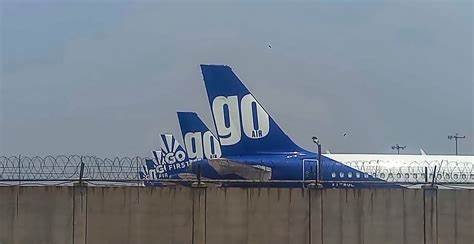The aviation industry in India is facing a significant crisis as two major airlines, Go First and SpiceJet, find themselves in troubled waters. This situation has sparked a flurry of requests from lessors to take back leased planes from these airlines, creating uncertainties and concerns for the country’s aviation market. With Go First being admitted for insolvency resolution proceedings and a subsequent moratorium, aircraft lessors are apprehensive about the enforcement of their rights under international norms and the potential spike in leasing costs for domestic carriers.
Go First, a cash-strapped airline, voluntarily filed for insolvency resolution proceedings, which has left a trail of concerns and uncertainties for aircraft lessors in India. As a result, they have sought deregistration and repossession of 45 planes from Go First, which has suspended its operations. The National Company Law Tribunal (NCLT) admitted the airline’s plea, prompting leading lessor SMBC Aviation to move the National Company Law Appellate Tribunal (NCLAT) against the NCLT ruling. Other lessors, including G Y Aviation and SFV Aircraft Holdings, have also approached the appellate tribunal. The ongoing legal proceedings have added to the complexity of the situation.
SpiceJet, another prominent Indian carrier, is also facing challenges as lessors have requested the deregistration of at least five of its aircraft. Additionally, one lessor has filed an insolvency plea against the airline. While SpiceJet has clarified its focus on business and ongoing talks with investors to raise funds, the situation remains concerning for the airline.
The leasing model plays a crucial role in the Indian aviation market, with most commercial aircraft being operated through sale and lease-back agreements. However, the current crisis involving Go First and SpiceJet has raised concerns about the potential impact on leasing costs. If the perception of India as a high-risk jurisdiction persists, it could lead to higher risk premiums for leasing aircraft to domestic carriers. This, in turn, may result in increased lease rentals and higher costs being passed on to passengers, making it more challenging for Indian airlines to compete with their international counterparts.
The Aviation Working Group (AWG), a not-for-profit entity representing major aviation manufacturers, leasing companies, and financial institutions, has put India on a watchlist with a negative outlook due to the Go First insolvency proceedings. Such a negative outlook could have long-lasting implications for India’s aviation sector.
The situation has also highlighted concerns that lessors might face difficulties in reclaiming their leased planes in India due to the legal complexities involved. There is a possibility that more lessors may request deregistration of planes leased to other airlines, fearing similar challenges and potential litigation.
As the crisis unfolds, the Indian aviation industry is closely watching the developments and awaiting the outcomes of the legal proceedings. The resolution of the crisis and the overall stability of the leasing environment will have significant implications for the future growth and competitiveness of the Indian aviation market.

